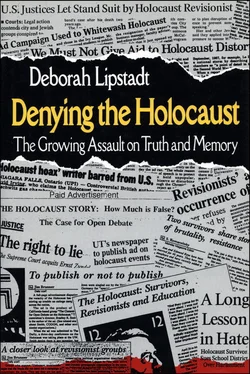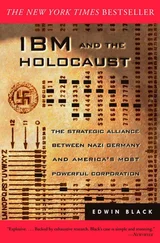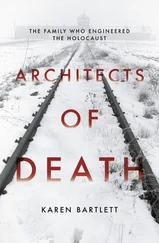Father Charles C. Coughlin’s antisemitic diatribes on CBS radio had a nationwide listening audience in the millions, and his journal, Social Justice, reprinted antisemitica that came directly from the propaganda machine of Joseph Goebbels (without, of course, identifying the source). In 1941 Democratic congressman John E. Rankin of Mississippi, a known antisemite, accused “Wall Street and a little group of our international Jewish brethren” of trying to precipitate a war and complained that “white Gentiles” were being persecuted in the United States. {24} In 1941 isolationist senators investigated the movie industry’s use of propaganda to “influence public sentiment in the direction of participation by the United States in the present European war.” {25} The hearings took on an antisemitic tone because virtually all those named by the investigation were Jewish. Charles A. Lindbergh believed that Jews constituted a separate, distinct, and cohesive unit committed to a policy of interventionism and possessed of the political power to realize their goal. [1]His public expression of these views attracted tremendous controversy. {26}
In the wake of Germany’s absorption of Czechoslovakia in March 1939, even such a respected scholar as Charles Beard attacked two “major pressure groups” for thwarting a realistic American “foreign policy based on geographical position and its democratic ideals.” The two groups were the idealistic internationalists and the “boarders,” ethnic groups and communists whose “hopes and passion are linked with the fate of foreign governments and nationalities.” {27}
The age-old inclination to find a Jewish conspirator behind a country’s problems was deeply ingrained. Jews had been blamed for poisoning wells, killing Christian children, spreading the Black Plague, and causing famines, earthquakes, and droughts. In twentieth-century America this kind of conspiratorial delusion was given a major boost when Hentry Ford, whose name was synonymous with American ingenuity and industriousness, blamed a Jewish conspiracy for social and economic upheavals. Between 1920 and 1927, Ford’s Dearborn Independent, which had a circulation of 600,000, published the Protocols in English and ran a series of articles accusing Jews of utilizing communism, banking, labor unions, alcohol, gambling, jazz music, newspapers, and the movies to attack and weaken America, its culture and people. The Jews’ objective was to absorb the country into the “All-Judan,” a putative world government. Published in book form, The International Jew: The World’s Foremost Problem sold over a half a million copies in the United States and was translated into sixteen foreign languages. {28}
The Protocols were often cited as “evidence” of a Jewish conspiracy. An article in the Chicago Tribune contended that communism was intimately linked to the Jewish conspiracy to dominate the world. On the same day that this article appeared, the Christian Science Monitor ’s lead editorial, entitled “The Jewish Peril,” argued that the Protocols bore a striking similarity to the conspiracy of the Order of the Illuminati. {29} Conspiracy theorists had long identified the Illuminati as Lucifer’s modern successors. They supposedly used reason to undermine religion and the political order and establish world government. Not only were they said to be the force behind the French revolution but they were also held responsible for Karl Marx’s Communist Manifesto and facilitated the rise of communism. According to this nexus of conspiratorial delusions, which the Dearborn Independent repeated, Jews, and Jewish bankers in particular, were responsible for the Illuminati’s nefarious deeds. Those who unearthed this conspiracy were able to impose a logical coherence on the seemingly irrational nature of their charges—bankers aiding communists—by arguing that the bankers anticipated that the communists would create a world government that they would then appropriate and control. {30}
Ford, facing a lawsuit, eventually apologized for fostering this fantasy. But the damage had already been done. The image of a Jewish conspiracy that connected communist and capitalist forces in an attempt to dominate the world had taken root in the minds of many Americans, particularly those from the extremist right.
Many of these Jewish-conspiracy theories, including Holocaust denial, share common features. Behind each conspiracy is a collective that has targeted another group. Though the victims are more numerous than the conspirators, because they remain unaware of the conspiracy they are highly vulnerable. It is the responsibility of those who have uncovered the scheme to bring it to the victims’ attention. The conspirators are thought to pursue their goals with a diabolical skill that far exceeds that of their enemies. Endowed with almost mystical powers, they control the stock exchange, world banks, and the media. Having successfully carried out such conspiracies in the past, these conspirators are so adept that, unless they are stopped, they will surely triumph in the future. {31}
These delusions impose orderly consistency on situations that seem inexplicable—worldwide depressions, famines, and the death of millions—and draw on familiar stereotypes. The Holocaust deniers have built on this tradition. Some among them may actually be convinced of the truth of their charges. The conviction that they are right does not, of course, make their claims any more rational or true than the earlier claims of those who accused the Jews of poisoning wells, killing Christian children for ritual purposes, and fomenting world revolution.
———
In the immediate aftermath of World War II a number of isolationists again took up the cudgels on behalf of Germany. Among the post-World War II revisionists were extremists who shared a belief that a military and political conspiracy of major proportions had again been perpetrated to drag the United States into war. According to them, Roosevelt had been intent on U.S. participation from the outbreak of the war in 1939. With a select cadre of advisers and the support of certain ethnic and interest groups, he sought a “back door” into World War II. In order to achieve his objective he concealed information indicating that an attack on Pearl Harbor was forthcoming. Convinced of Roosevelt’s complicity in allowing the attack to occur, the Chicago Tribune accused him of deliberately sacrificing the lives of thousands of American soldiers. Led by journalists, pacifists, and politicians, critics argued further that Pearl Harbor was part of a bigger and more complex picture. They believed that the Roosevelt administration needed a war to divert public attention from the failures of the New Deal.
Criticism came from those who were bitterly disappointed that the war had taken place and unhappy with its outcome. Bitterness was reflected in their rhetoric. In his book The Roosevelt Myth, America First leader John T. Flynn accused Roosevelt of finding war a “glorious, magnificent escape from all the insoluble problems of America.” Flynn argued that nothing had been accomplished by the war except to “put into Stalin’s hands the means of seizing a great slab of the continent of Europe.” Flynn’s book, which was rejected by all major publishers because of its inflammatory rhetoric, was eventually released by Devin-Adair, which would in turn become one of the leading publishers of Holocaust denial material. Its rhetoric notwithstanding, it reached the number two position on the New York Times best-seller list. {32}
Charles Beard also argued that the defeat of one totalitarian entity resulted in the rise of an equally despotic regime. Nazism had been replaced by another despotism, consequently there was no justifiable reason for going to war. Juxtaposing the outrages committed by the Nazis with those committed by the Soviets, Beard wondered how it could be argued “that the ‘end’ justified the means employed to involve the United States in the war?” {33} Citing Beard for a purpose that would have appalled him, Holocaust deniers’ journals and publications argue that the war against Hitler was not just folly but counterproductive to American interests. Consequently, the deniers contend, there must have been some interest group that wanted the war to occur.
Читать дальше












